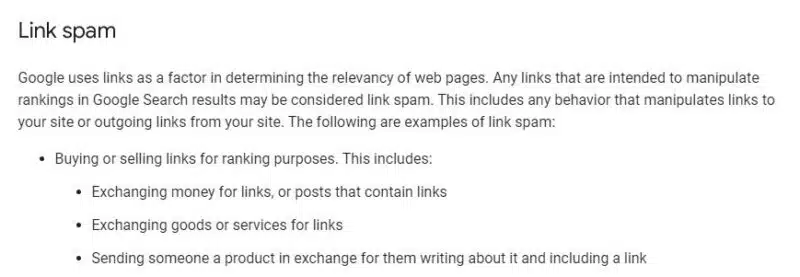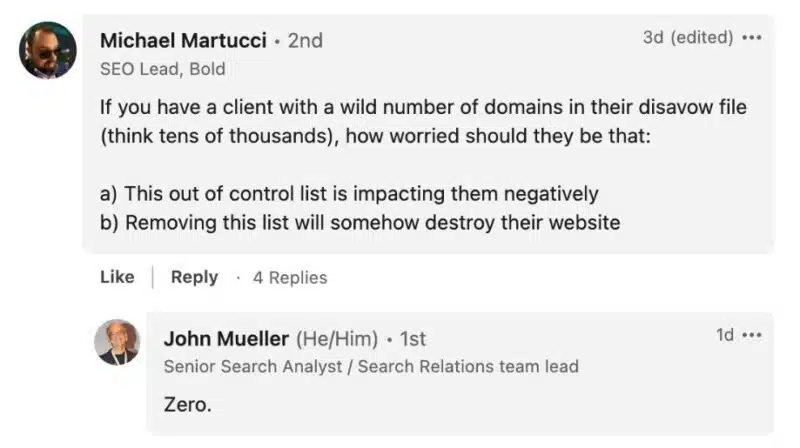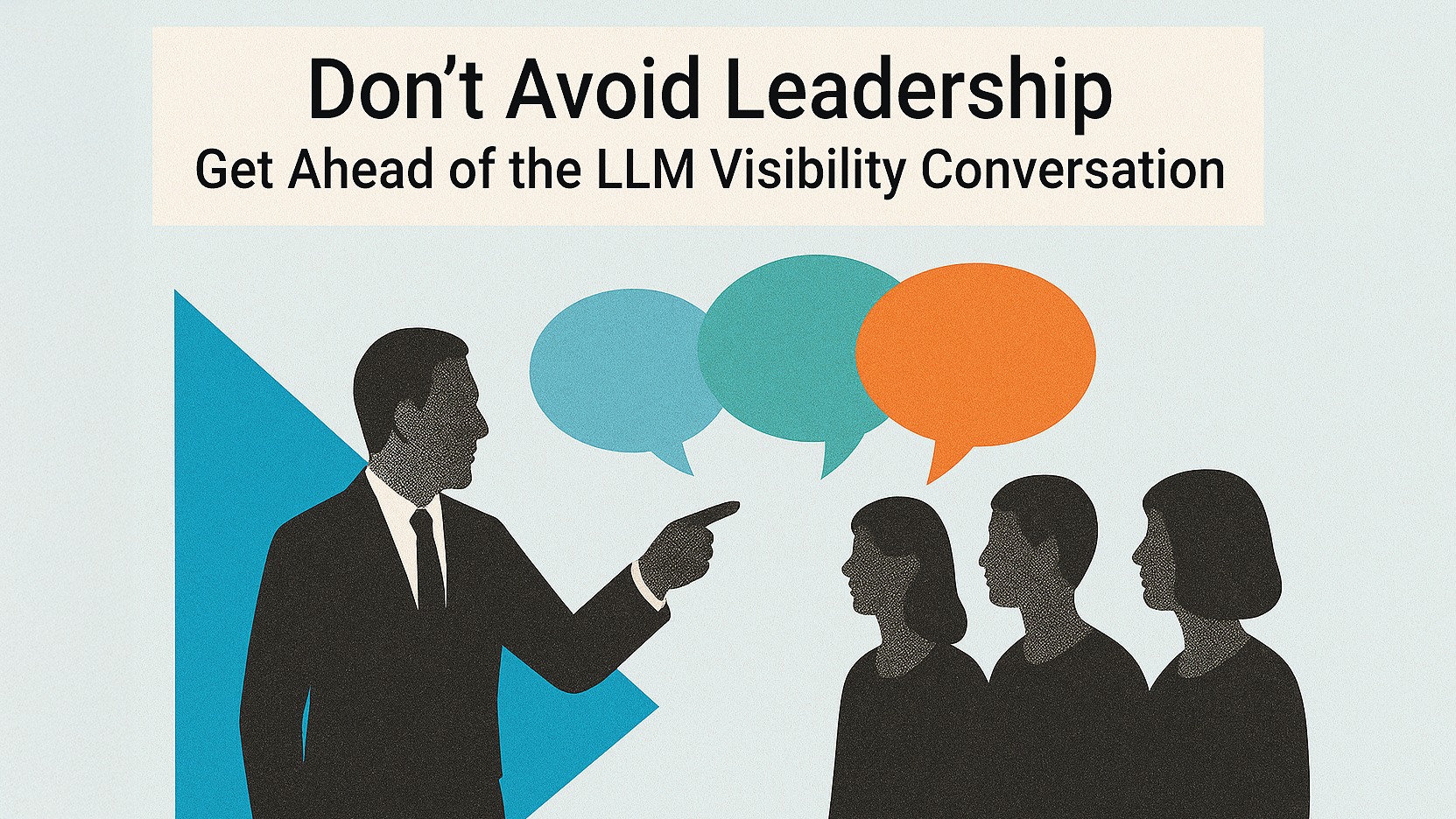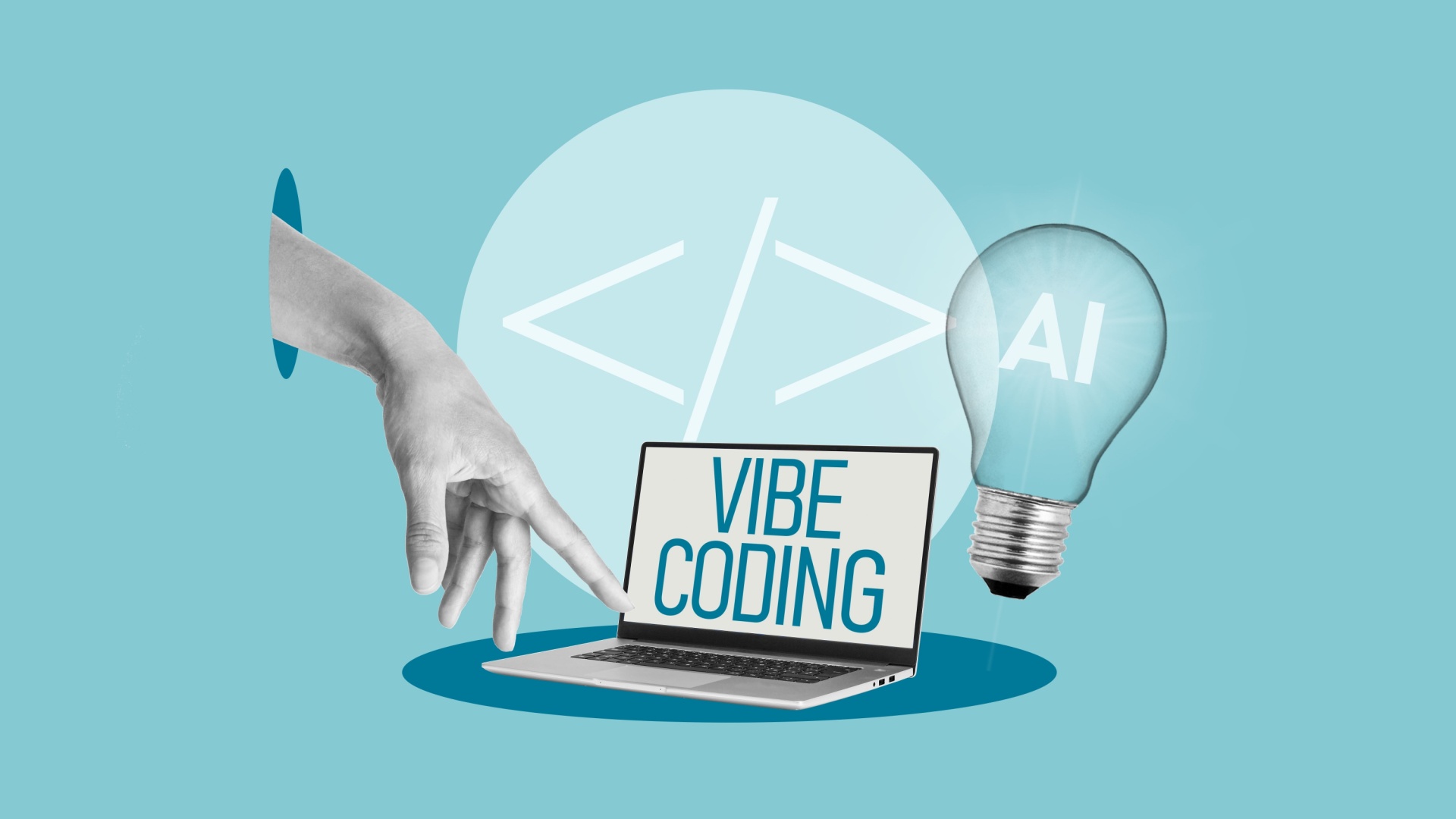Survey: 92% of SEOs suspect their competitors buy links
Buying backlinks can seriously harm your SEO performance. Here's how to avoid penalties and losing traffic.
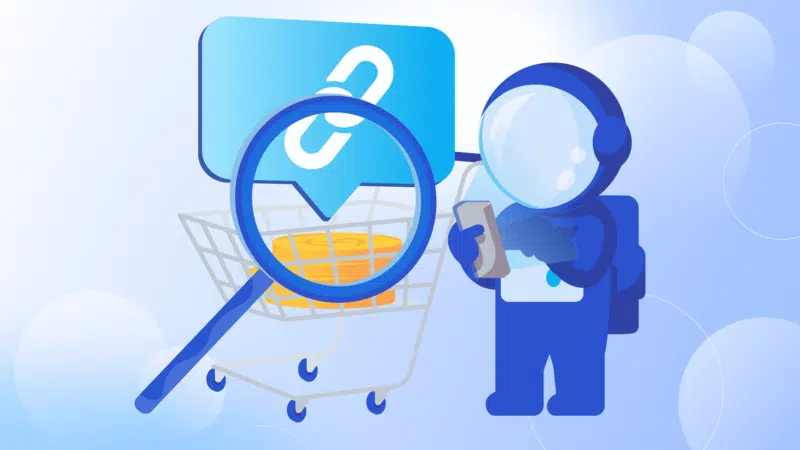
A surprising 92% of SEOs and link builders believe their competitors are buying backlinks, according to a recent Editorial.Link survey of 113 industry experts.
This stat highlights the ongoing debate in our community around the power and value of links.
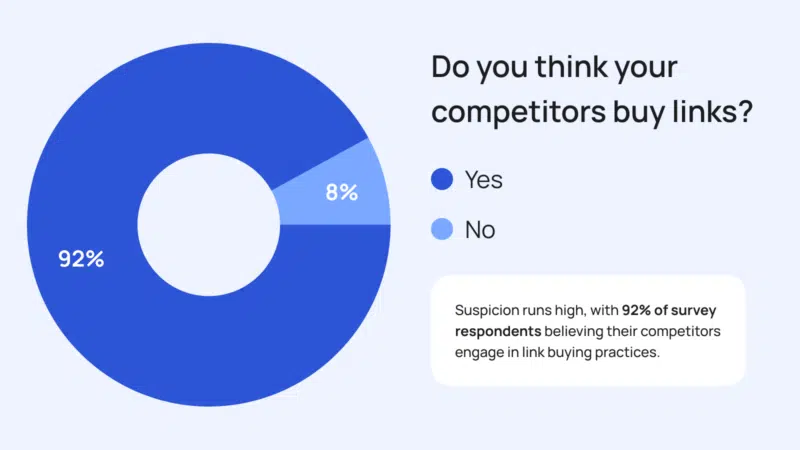
Are bought backlinks a shortcut to SEO success? Or are they a huge risk?
Let’s dive into this topic and see if buying backlinks is a viable strategy in 2024.
Proof that buying backlinks is risky
Buying backlinks is a risky move.
Why?
Google’s guidelines are clear: paid links can lead to penalties and a significant drop in search rankings.
Paid links can undermine search result integrity.
Some industries might find paid backlinks tempting, but the risks outweigh the benefits. Sticking to organic link building practices is crucial for maintaining your site’s credibility and long-term success.
Statistics about buying backlinks
Ahrefs’ research highlights a common trend: buying backlinks is still popular because organic link building is tough and takes time. Many SEOs take the shortcut despite the risks because naturally earning links is hard.
Only 12.6% of the sites they reached out to were open to selling a link, Ahrefs discovered. Most site owners didn’t even respond.
Of those who did, about half wanted a fee for guest posts.
Websites often sell links in competitive niches like finance, insurance and gambling. While this might yield short-term success, the long-term consequences can be severe. Penalties and wasted investments are common outcomes.
Why some sites are more willing to sell links
Buying links is often seen as an essential tactic for ranking well. Many website operators have realized the financial benefits of selling links, with some earning significant revenue.
This monetization trend makes it challenging to secure high-quality links without paying for them.
Sites with lower domain ratings (DR) are more likely to sell links, viewing it as a way to make money. Ahrefs’ study found that niche edits average $361.44, while guest posts cost around $77.80.
This reflects the ongoing market demand for backlinks.
Why are paid links a waste of money and time?
Editorial.Link extensively explored the impact of buying backlinks. This research, especially after Google’s huge March updates, paints a grim picture:
- 40,000+ websites selling links and saw substantial traffic drops.
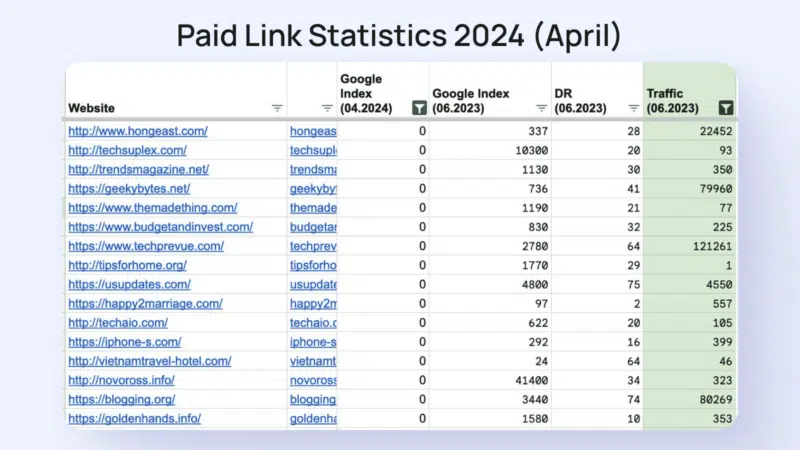
- Paid sites (June 2023): 44,276
- Paid sites with 200 server response (April 2024): 31,388
- Paid sites with 3XX, 4XX, 5XX server responses: 12,888
- Dead paid sites: 29%
Among the remaining 31,388 sites, 11,000 have less than 100 pages in the Google index.
- Traffic 1000+ (June 2023) – there were 7,560 sites
- Traffic 1000+ (April 2024) – there were 6,361 sites
Only 2,021 sites (6.6%) had a positive traffic trend.
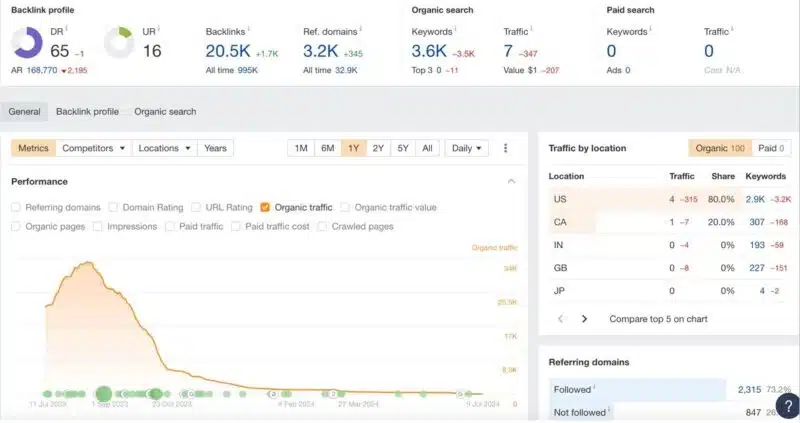
Many of these sites, charging hefty fees for links, appear to have been severely penalized.
Google’s algorithms are able to detect and ignore low-quality links. Worse, there’s a risk of manual actions, leading to plummeting traffic and tough recovery.
If you’ve bought such links, the best you can do next is disavow them. Otherwise, you’ll waste money on tactics that can hurt your site’s performance in the long run.
Surprisingly, 69% of SEOs don’t use Google’s Disavow tool – only 31% use it.
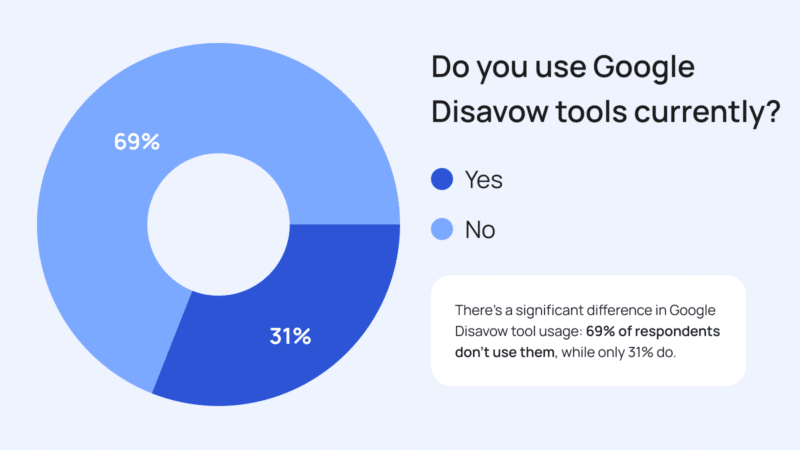
However, if you’re worried about massive link disavow lists, don’t be. At least, Google’s John Mueller says you shouldn’t be. When asked how concerned you should be about an extensive disavow file, he briefly replied, “Zero.”
Even if you remove the list, it won’t hurt your site. SEO expert Michael Martucci posed these questions, and Mueller’s concise response clarified the issue.
So, relax and focus on more impactful SEO strategies. You’ve got this!
Paid links might seem like a shortcut, but they’re extremely risky. Investing in ethical, organic link building strategies is the smarter, more sustainable choice.
How to check if backlinks are paid
The complexities of paid backlinks inspired Editorial.Link to develop its Link Type Classifier.
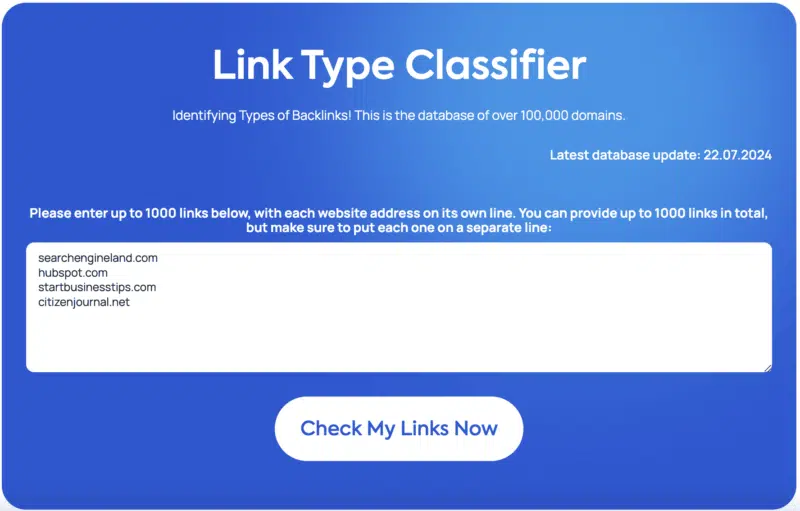
Why do you need this tool?
Well, it helps you verify if your link building services are acquiring links naturally, like Editorial.Link does, or if they are buying them. This ensures your strategies align with best practices and protects your site from potential penalties.
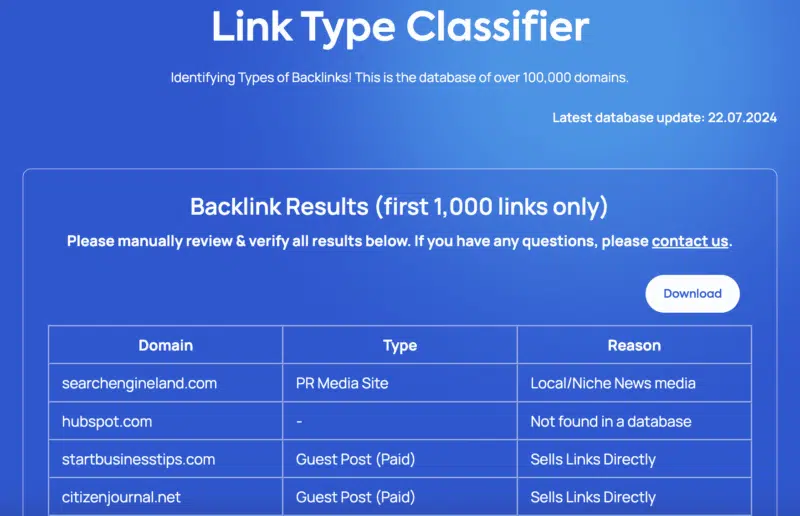
Additional tips
To find the right agency:
- Discuss their backlink strategies, review case studies and read testimonials. Verify if they build quality links through organic methods like outreach or PR.
- Avoid link farms and agencies that promise guaranteed results, offer suspiciously low prices or use PBN (Private Blog Network) links. These are red flags.
- For a robust link profile, always prioritize high-quality, transparent sites with original content and engaged audiences.
Use the Link Type Classifier tool to safeguard your site’s integrity and effectiveness in SEO efforts.
More link building statistics insights
Buying backlinks can provide a quick ranking boost, but it comes with significant risks, such as Google penalties and poor ROI. While tempting, especially in competitive industries, the long-term consequences often outweigh the short-term benefits.
Focus on organic link building for sustainable success. Use tools like the Link Type Classifier to ensure your backlinks are natural and protect your site from penalties.
The link building statistics report is packed with crucial data on today’s top strategies. You’ll see which methods deliver the best results and which ones to skip.
The report also examines the cost of backlinks and the financial incentives behind selling links. This information can help you make smart decisions about your link building investments.
You can build a strong link profile using ethical link building methods.
Stay ahead and make smarter link building choices easier!
Opinions expressed in this article are those of the sponsor. Search Engine Land neither confirms nor disputes any of the conclusions presented above.
